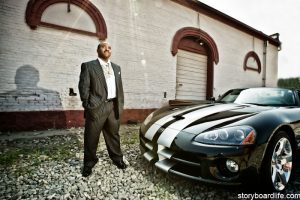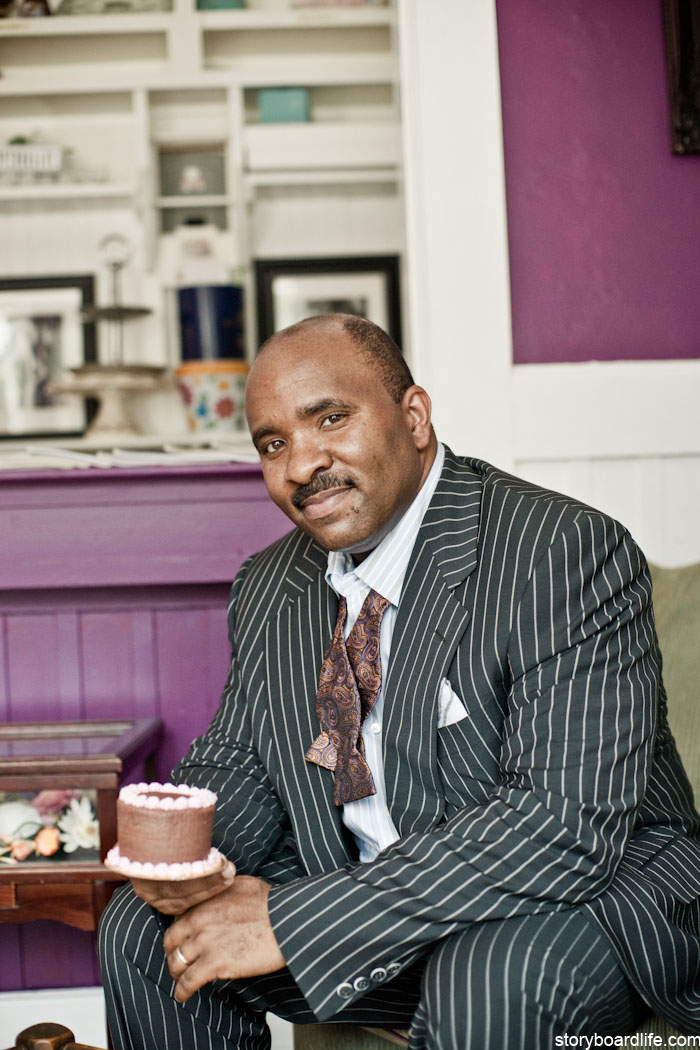For Eric Dunlap, the diagnosis began with a throbbing pain in his upper chest during an intense home workout.
It was 2000, and Dunlap, then 34, was beginning to settle into the American Dream just outside of Atlanta. He was a few years into a marriage with his college sweetheart, and was the father of two young sons, ages three and 13-months. He had a burgeoning career in mortgage finance and had just finished a 100 push-up workout. “I felt a pain in my chest. I thought I pulled a muscle—I couldn’t stand,” Dunlap said. And then, he noticed a lump near his nipple.
Dunlap’s wife urged him to see a doctor the next day, and it wasn’t long before Dunlap was blitzing through physicians and medical specialists. Within days, he received a phone call from a nurse urging him to come to the doctor’s office. He initially blew off the request, but then he got a call that changed his life.
“I’m sorry. I have to be upfront with you, but you have breast cancer,” a pathologist told him over the phone.
 “Men don’t get breast cancer,” Dunlap thought to himself.
“Men don’t get breast cancer,” Dunlap thought to himself.
“I didn’t want to believe it. I didn’t want to accept it as a possibility,” he said. “I was feeling like I was in my early 20s. I wasn’t in horrible shape or anything, so to find out I had breast cancer [was shocking].”
Breast cancer in men is far less common than in women, accounting for less than one percent of all breast cancer diagnoses, according to the American Cancer Society (ACS). Still, the number of men diagnosed with the disease has been trending upward in recent years. According to ACS, 2,600 men were diagnosed with breast cancer in 2016—up from 1,970 in 2010.
Dunlap’s family has a history with breast cancer—his grandmother died from the disease and his mother is a breast cancer survivor. Dunlap himself was diagnosed with stage two breast cancer, meaning that the cancer had not yet spread beyond the chest and the nearby lymph nodes.
“The first thought was fear,” Dunlap said. “How long am I going to live? I prayed a lot.”
Dunlap felt that he had to be strong for his wife and his two children. He said he was still the family’s provider and was soon juggling an intense six-month treatment of chemotherapy and radiation while maintaining a work schedule.
“My number one concern was being alive,” he said.
Dunlap soon found himself staring down his own vanity.
During a radical mastectomy, parts of the breast and muscle tissue in his chest were removed along with the tumor. While his hair, eyelashes, and eyebrows shed due to the chemotherapy—he feared the damage done to his chest by the surgery would cause lingering scars, on the inside and out.
“I didn’t want to be shirtless. I didn’t want to be an eyesore,” he said. “I was a guy who wanted to look fit. I wanted to still be that athletic guy who was still in shape. I wanted my mate [to find me attractive].”
Dunlap also had challenges talking about his diagnosis to other men.
“I was told this is a woman’s disease. Some [men] looked at me like ‘what’s wrong with you’ [as if] I asked for it,” he said. “Your ego is going to go. Some people don’t know the appropriate thing to say.”
But after 11 years in remission, Dunlap, now 50, said he’s on a mission to raise awareness about male breast cancer and to encourage men to be more proactive and communicative about their health. His journey led him to become a motivational speaker.
“If we connect with our physicians and are more revealing, it’s going to open up a dialogue,” he said. “My whole goal is to make sure people are educated and empowered. Unchecked, untreated, undiagnosed, it can lead to death. It’s not just about you; it’s about your family.”
For more on Eric Dunlap visit his website.




